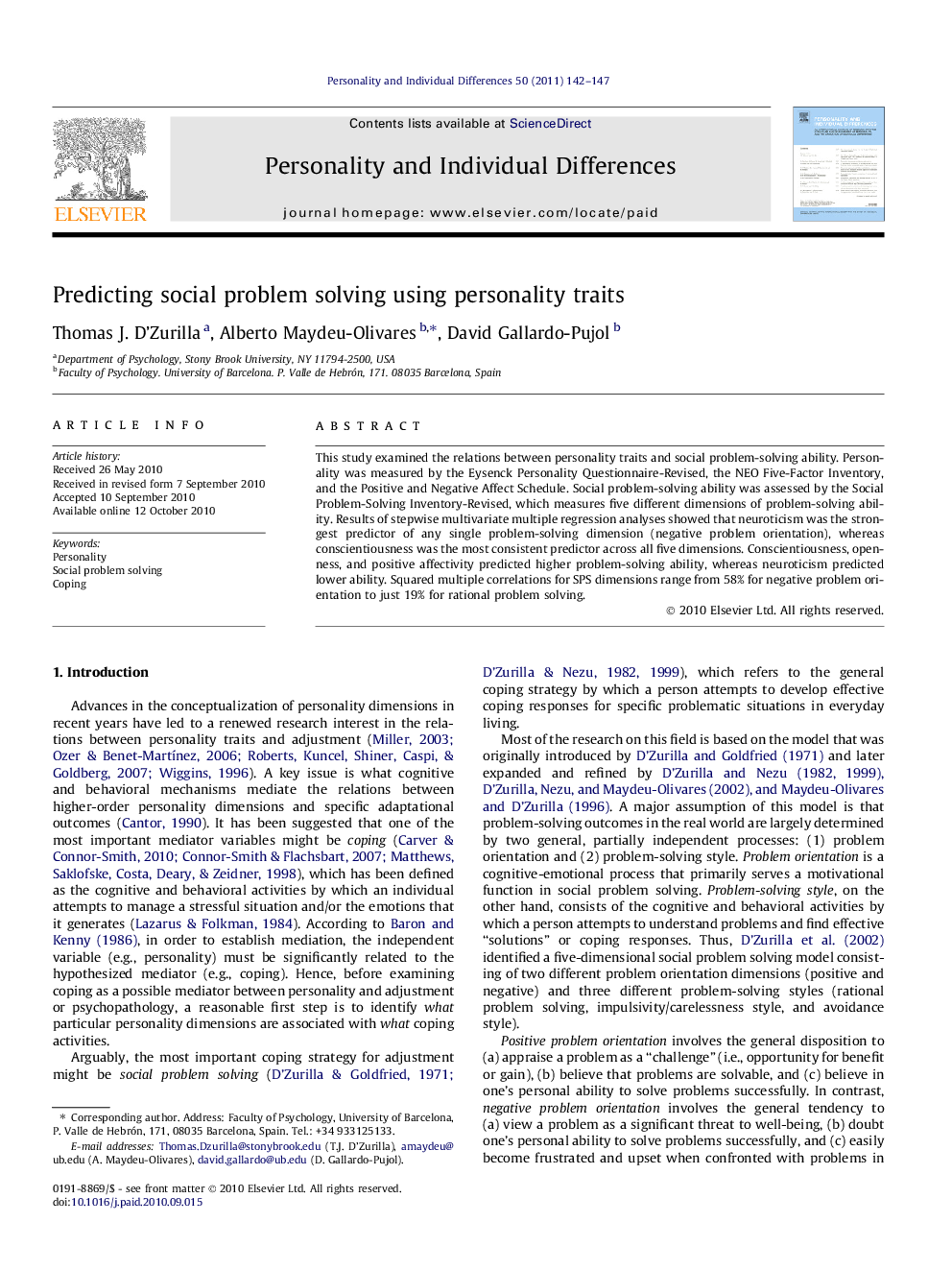| Article ID | Journal | Published Year | Pages | File Type |
|---|---|---|---|---|
| 891757 | Personality and Individual Differences | 2011 | 6 Pages |
This study examined the relations between personality traits and social problem-solving ability. Personality was measured by the Eysenck Personality Questionnaire-Revised, the NEO Five-Factor Inventory, and the Positive and Negative Affect Schedule. Social problem-solving ability was assessed by the Social Problem-Solving Inventory-Revised, which measures five different dimensions of problem-solving ability. Results of stepwise multivariate multiple regression analyses showed that neuroticism was the strongest predictor of any single problem-solving dimension (negative problem orientation), whereas conscientiousness was the most consistent predictor across all five dimensions. Conscientiousness, openness, and positive affectivity predicted higher problem-solving ability, whereas neuroticism predicted lower ability. Squared multiple correlations for SPS dimensions range from 58% for negative problem orientation to just 19% for rational problem solving.
